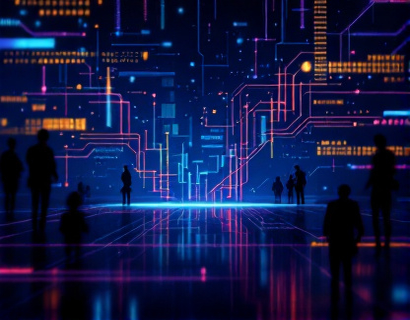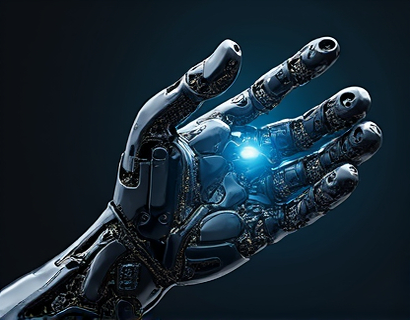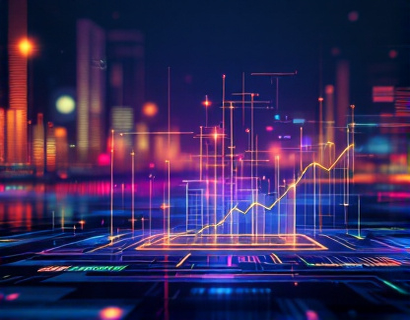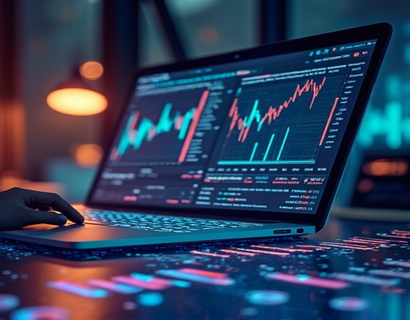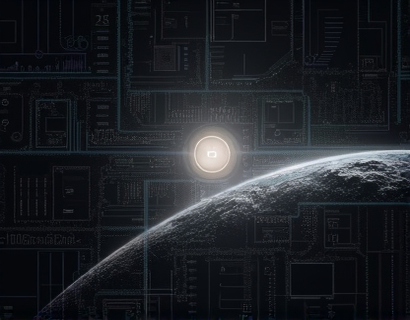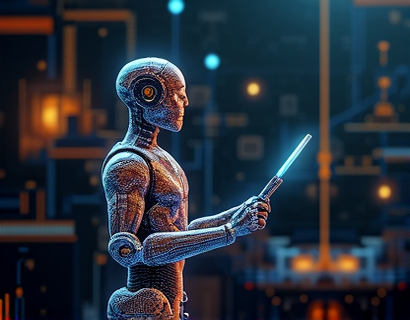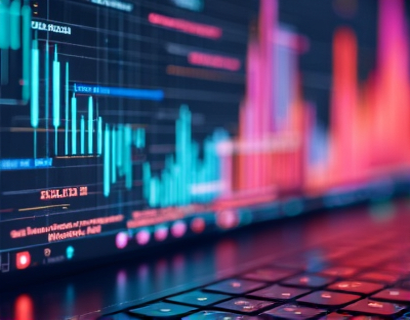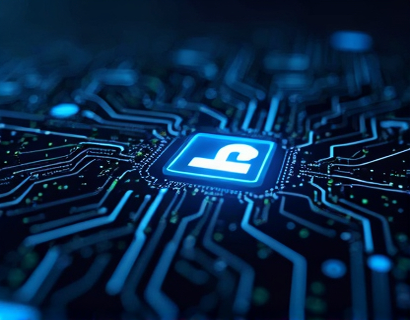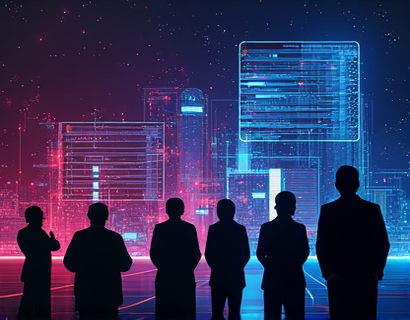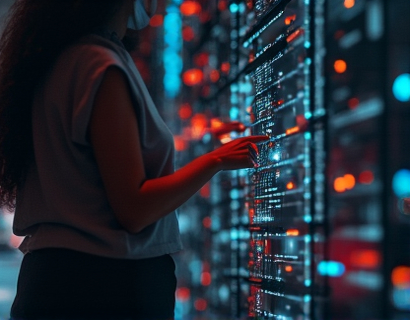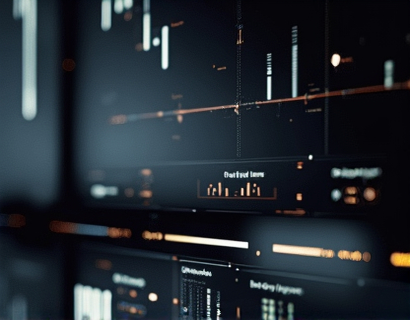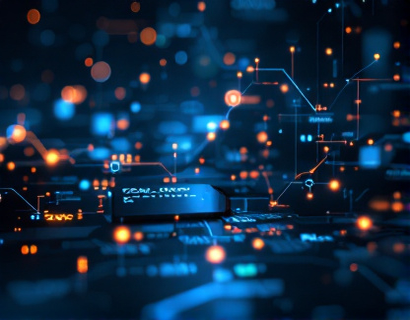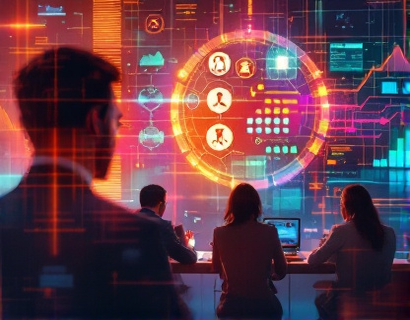Crypto and AI: Transforming Digital Experiences for Next-Gen Ucosystem Growth
The intersection of blockchain technology and artificial intelligence (AI) is revolutionizing the digital landscape, creating unprecedented opportunities for growth and engagement. This article delves into the transformative impact of combining these two cutting-edge technologies to enhance digital experiences. For tech innovators and early adopters, understanding how to leverage blockchain and AI is crucial for staying ahead in the rapidly evolving tech ecosystem.
The traditional digital ecosystem has been characterized by centralized control, data silos, and limited user autonomy. However, the advent of blockchain technology has introduced a decentralized paradigm, enabling secure, transparent, and tamper-proof transactions. When combined with AI, this decentralized framework can be harnessed to create more intelligent, responsive, and user-centric digital experiences.
Decentralized Data Management
One of the key areas where blockchain and AI converge is in decentralized data management. Traditional data storage solutions rely on centralized servers, making them vulnerable to breaches and manipulation. Blockchain technology offers a decentralized alternative, where data is distributed across a network of nodes, ensuring higher security and integrity.
AI algorithms can optimize this decentralized data management by efficiently processing and analyzing large volumes of data from various sources. For instance, machine learning models can identify patterns and anomalies in decentralized datasets, enabling real-time insights and decision-making. This synergy not only enhances data security but also improves the accuracy and relevance of insights derived from the data.
Enhanced User Privacy and Control
User privacy and control are paramount in the digital age. Blockchain technology empowers users by giving them ownership of their data, allowing them to decide who can access and use their information. Smart contracts, self-executing contracts with the terms directly written into code, can automate data sharing and access control, ensuring that users have granular control over their personal information.
AI complements this by providing advanced encryption and anonymization techniques. Machine learning algorithms can generate complex encryption schemes that adapt to evolving threats, ensuring that user data remains secure. Additionally, AI can help in creating decentralized identity systems, where users can manage their digital identities without relying on centralized authorities.
Personalized User Experiences
AI-driven personalization is a game-changer in creating engaging digital experiences. By analyzing user behavior, preferences, and interactions, AI can deliver tailored content, recommendations, and services. When integrated with blockchain, this personalization can be enhanced by ensuring that user data is securely and transparently managed.
For example, a decentralized recommendation system can use AI to analyze user interactions on a blockchain-based platform, providing personalized content without compromising privacy. Users can opt-in to share specific data points, and AI algorithms can use this data to refine recommendations, creating a more intuitive and satisfying user experience.
Fraud Detection and Prevention
Fraud remains a significant challenge in the digital ecosystem, affecting everything from financial transactions to online identities. Blockchain's immutable ledger and AI's predictive analytics capabilities can be combined to create robust fraud detection and prevention systems.
AI algorithms can monitor transactions and user activities in real-time, identifying suspicious patterns and anomalies that may indicate fraudulent behavior. These insights can be fed into blockchain-based systems to trigger automated responses, such as freezing accounts or alerting users. This proactive approach not only enhances security but also builds trust among users.
Smart Contracts and Automated Processes
Smart contracts are a cornerstone of blockchain technology, enabling automated and trustless execution of agreements. When combined with AI, smart contracts can become even more powerful, capable of making intelligent decisions based on complex conditions and real-time data.
For instance, in supply chain management, AI can optimize logistics and inventory management, while smart contracts can automate payments and ensure compliance with contractual terms. This synergy reduces manual intervention, minimizes errors, and accelerates processes, leading to more efficient and reliable operations.
Decentralized Finance (DeFi) and AI
Decentralized Finance (DeFi) is another area where blockchain and AI are transforming the financial landscape. DeFi platforms offer a range of financial services, from lending and borrowing to trading and asset management, all without intermediaries. AI can enhance DeFi by providing sophisticated risk assessment, portfolio optimization, and algorithmic trading capabilities.
AI-driven models can analyze market trends, predict price movements, and optimize asset allocation, helping users make informed investment decisions. Additionally, AI can detect and mitigate risks in real-time, ensuring that DeFi protocols operate smoothly and securely. This combination of blockchain and AI in finance is paving the way for a more inclusive and efficient financial system.
Challenges and Considerations
While the potential of combining blockchain and AI is vast, there are several challenges and considerations to address. Scalability remains a significant issue, as both technologies require substantial computational resources. Developing more efficient algorithms and infrastructure is essential to support large-scale applications.
Regulatory uncertainty is another factor to consider. As these technologies evolve, regulatory frameworks are still catching up. Ensuring compliance while innovating is crucial for sustainable growth. Additionally, the ethical implications of AI, such as bias and transparency, must be carefully managed to build trust and credibility.
Future Outlook
The future of the digital ecosystem is bright, with blockchain and AI set to drive unprecedented growth and engagement. As these technologies continue to mature, we can expect more innovative applications across various industries. From healthcare and education to entertainment and governance, the possibilities are endless.
For tech innovators and early adopters, embracing the synergy between blockchain and AI is key to staying competitive. By leveraging these technologies, businesses can create more secure, personalized, and efficient digital experiences, ultimately driving user satisfaction and loyalty. The journey ahead is exciting, and those who harness the power of blockchain and AI will be at the forefront of the next digital revolution.



